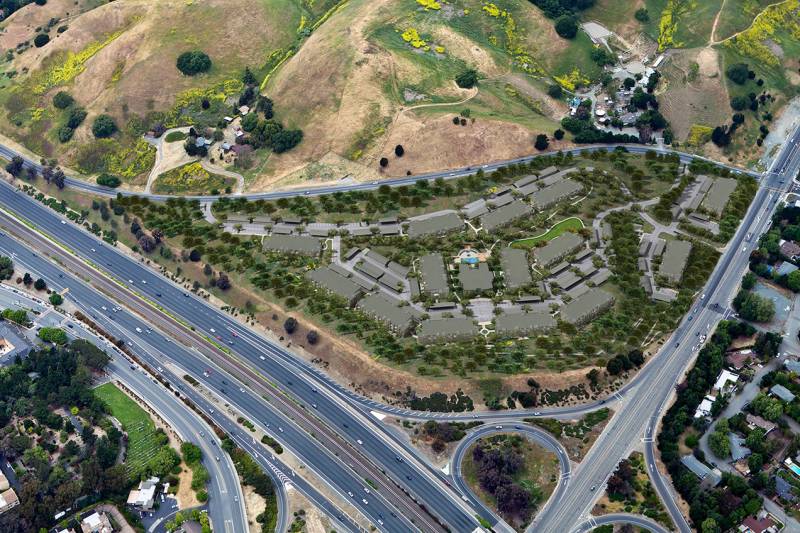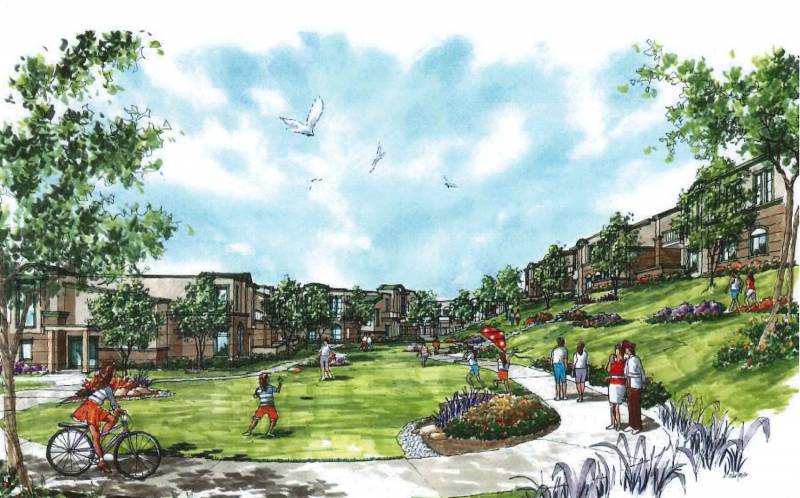Update, 1:35 a.m. Tuesday: It’s been voted down, legally challenged, backed by voter referendum, and stalled for years, like a car spinning its wheels in mud. Now, a 315-unit apartment development in Lafayette that became a statewide rallying cry for the Yes In My Back Yard movement will spin its wheels a little longer.
The vote to approve The Terraces development was delayed by the Lafayette City Council after a seven-hour marathon meeting that stretched from Monday night into early Tuesday.
The Lafayette City Council said they needed more time to fully discuss concerns aired by neighbors, many of whom claimed the proposed apartments would bring crippling traffic congestion, increase the risk of wildfire, and imperil the movement of emergency vehicles.
But Jeremy Levine, a Lafayette resident and co-founder of the group Inclusive Lafayette, said those concerns have been proven untrue by Lafayette city staff, and others.
While the Lafayette City Council pushed their decision down the road, public commenters and city staff warned Lafayette would be open to lawsuit under the Housing Accountability Act – and $15 million in possible fines – should they fail to approve the project.
Victoria Fierce of housing advocacy group California Renters Legal Advocacy and Education Fund, or CaRLA said, “Lafayette may no longer choose between housing or no housing. You may decide between housing and consequences.”
The Lafayette City Council will continue its discussion of The Terraces development August 24.
Original post, 1:00 p.m. Monday:
Before a single brick has even been laid, The Terraces, a proposed 315-unit apartment development in Lafayette, became a flash point for discussion around the housing crisis in Northern California.
The 2015 legal battle over the project helped define the “Yes In My Backyard,” or YIMBY, movement. The movement, and the activists behind it, have made a name for themselves by “suing the suburbs” like Lafayette, in a bid to push California to “build, build, build” its way out of the housing crisis.
Now, nearly a decade after the project first entered the public sphere, The Terraces finally faces approval Monday night from the Lafayette City Council.
Councilmember Cameron Burks appealed the project after it was approved July 1 by the Lafayette Planning Commission.


